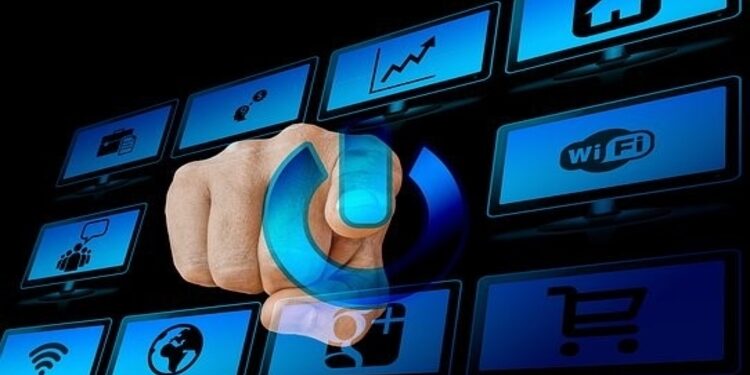The Internet of Things is continuing to make its presence felt in all areas of our lives. As consumers we may use smart speakers and assistants. At work sensors are collating data faster than we can analyse it. The government is keeping a wary eye on developments and trying to plan for new cyber security threats. The truth is, the IoT is expanding very quickly. The impressive growth is driven by consumer familiarity with the technology, but it’s also growing as businesses begin to understand the value IoT-connected goods and services can provide. In the right configurations, the IoT can completely change the way some companies do business. Smart businesses are working to identify how they can use the IoT to their advantage. IoT technology can be a significant investment, so it’s vital you can communicate the value of the installation to the decision-makers in your business. Understanding how the IoT is already working in all areas of life can help to demonstrate how ubiquitous it’s becoming, and how necessary it will be to stay competitive. Here’s a quick round up of how the IoT will influence consumers, enterprises and the government.
The IoT for consumers
Globally consumers are eager to engage with IoT devices with home-based devices predicted to reach over 1 billion in less than 5 years. Here in the UK adoption rates are slightly slower, as scepticism about the new technology, elevated price entry points and privacy concerns hinder purchases. The IoT has the potential to extend far beyond voice-activated assistants like Siri and Alexa, and doorbells that send video to your smartphone. As homes become more connected, more data will be captured. There will be scope to analyse energy usage in the home in order to identify cost-reduction strategies, and many other use-cases that are in development. Providers of this technology will benefit by building a significant database of broad consumer usage patterns. Semi-autonomous vehicles will slowly come to market as a viable alternative, so expect market engagement to increase along with adjacent innovations.
The IoT for enterprises
Enterprise continues to show the steadiest engagement with the IoT. Companies of all sizes are committing to the technology. The engagement can be credited to the diversity of applications and the easily demonstrable cost-saving benefits to companies. The rapid return on investment for most companies is enticing plenty of new enterprises on board, particularly in the field of automation. Smart offices have potential to further reduce costs and provide more comfortable working environments for employees. This niche continues to evolve in surprising and creative ways, for example: room and venue booking software has the potential to integrate with lighting and environment management to further tailor user experience. Industrial sites can also benefit from similar application of the technology by controlling energy output based on movement and use of workshops or sites.
The IoT isn’t restricted to heavy industry and office spaces. Enterprises that rely on high turnover, perishable goods are finding clear use cases for IoT-connected refrigeration. Strategically this data can connect this to larger buying patterns. Data collection can even be used for meta-studies on purchasing patterns and larger public health correlations. Restaurants and larger-scale food retailers will see value in this also.
Enterprises can also take advantage of IoT developments for consumer interactions. Smart cars will help drivers avoid traffic snarls and smart shopping carts will help shoppers have a smoother retail experience (we are already seeing nascent trials of smart shopping experiences in the US and Australia). In yet another application, ecommerce traders are finding room for the IoT to help facilitate smoother transaction experiences for customers. Sizing, delivery and return options are common points of friction for online shoppers but IoT devices and connections may reduce problems, leading to greater consumer satisfaction and business profits. Even traditional retailers are deploying connected devices and fitting rooms to create engagement and brand loyalty.
The IoT for government
Local and state governments have the opportunity to engage with the Internet of Things in a number of ways. They also have an overarching responsibility to encourage security-focussed thinking about this still developing technology. Smart cities are on the rise with integrated use of CCTV, street lights and even parking meters working together to create safer and more fluid environments. Traffic management, waste management and environmental uses have been trialled in various locations also. Governments are also taking advantage of IoT to help provide food security. Significant data collection can be conducted using sensors to understand rainfall, seed dispersal and harvest yields. These data points are critical for planning and preparing for agricultural challenges such as climate change.
In the realm of cyber security, the UK government has developed a draft code of practice called Secure by Design. As we know, the earliest IoT-connected devices were not always designed with security in mind and were often easily controllable by malevolent third parties. The code of practice is designed to provide clarity and direction for both developers and users of the technology. There is plenty of discussion occurring around the Secure by Design code and whether voluntary compliance will provide enough protection. Business owners and decision makers should be aware of developments that are occurring in this area.
A final note of caution: The Internet of Things is growing at such a rapid pace that no universal standards have been set regarding security or other protocol. Attempts have been made but it seems the technology has developed and launched with such diversity that it may be too late. Consider security and compatibility when it comes to choosing your IoT devices, particularly when it comes time to integrate it into your business.
About Mustard IT, your Internet of Things partner
Mustard IT provide the design, build, installation and maintenance of secure IT servers and networks, and IoT-related installation and security processes. Our trusted team are experienced able to explain complex issues to you in a language you’ll understand. Contact us today to find out how we can help you.













